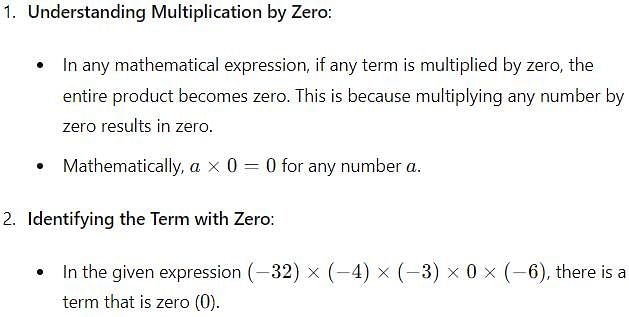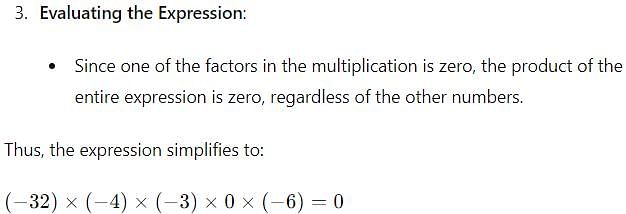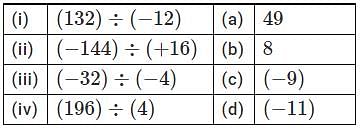Important Questions: Integers - Class 7 MCQ
20 Questions MCQ Test Mathematics (Maths) Class 7 - Important Questions: Integers
What do we call the set of negative numbers and whole numbers?
Which of the following is the smallest positive integer?
| 1 Crore+ students have signed up on EduRev. Have you? Download the App |
Where are the negative numbers located on a horizontal number line?
Which of the following is true with respect to −28 and −32?
Where do we place the positive numbers on a vertical number line with respect to 0?
What is the representation of 30 km towards the west?
What is the nature of the product of a negative integer by itself, odd number of times?
What is the nature of the product of a negative number by itself even number of times?
If the dividend and the divisor have like signs, what is the sign of the quotient?
If the dividend and divisor have unlike signs, what is the sign of the quotient?
With respect to which of the following operations is closure property satisfied by the set of integers?
What is the additive identity element for the set of integers?
Which of the following is the multiplicative identity in the set of integers?
Which of the following order is used while evaluating an expression?
If negative sign precedes a bracket the sign of the terms inside the bracket will when the bracket is removed ?
|
76 videos|345 docs|39 tests
|
|
76 videos|345 docs|39 tests
|





















